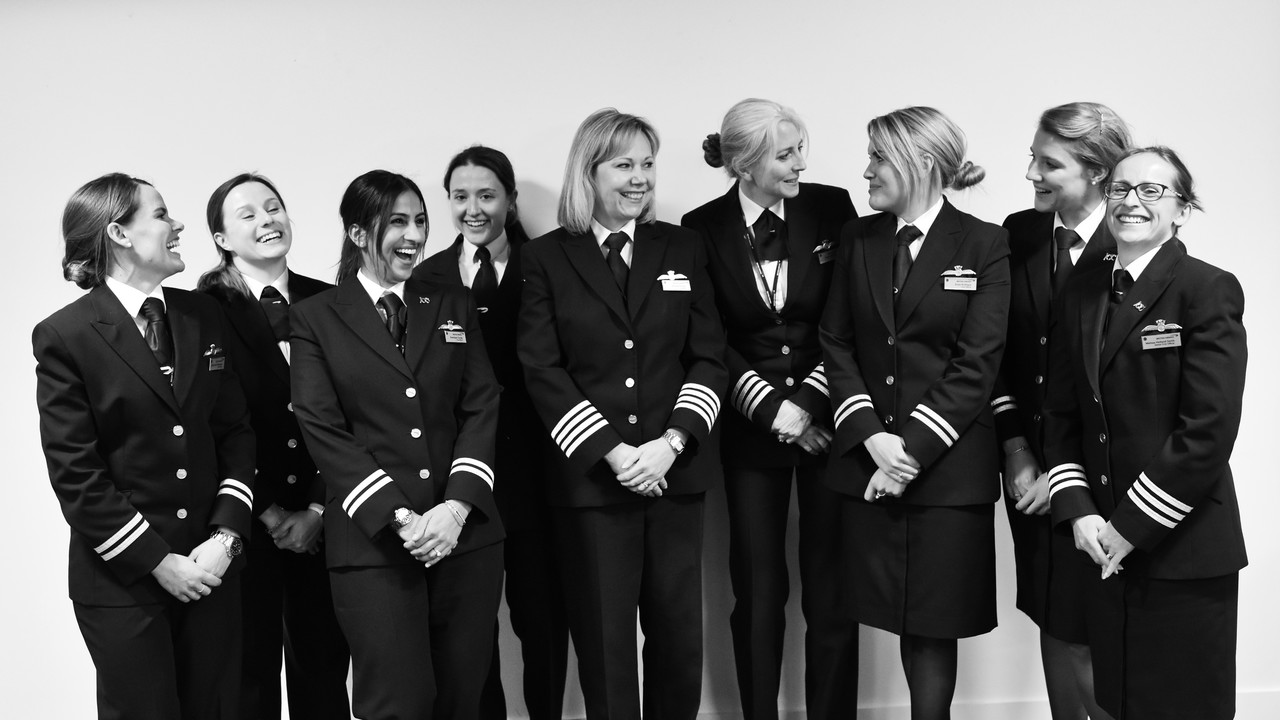
As has become an annual tradition, airlines around the world celebrated International Women’s Day yesterday with a number of high profile media events. The aim is two-fold – to both encourage more women into the aviation industry and in particular STEM careers, and secondly to promote what has already been done to improve equality and gender representation.
It’s no secret that there’s much to do to improve gender equality throughout the aviation industry. The bulk of airline leaders are still men and the glass ceiling has become stubbornly hard to break through. At the same time, the vast majority of female airline workers remain employed in lower-paid jobs that have been traditionally reserved for women.
Possibly the most acute problem is the lack of female representation in the flight deck. Internationally, women make up just 5.8% of pilots according to The International Society of Women Airline Pilots. Even at United Airlines, which reports the highest number of female pilots amongst 34 major airlines, women only account for 7.4% of its pilots.
Yet, while International Women’s Day has proved to be a great public relations exercise, the British Airline Pilots Associations (BALPA) says airlines need to “put their money where their mouth is” in order to improve equality and end a massive gender pay gap.
“Today many airlines are using International Women’s Day to highlight what they are doing to encourage women to become pilots,” BALPA’s General Secretary Brian Strutton explained.
“We applaud many of the schemes which look to attract women, but it is not enough to simply talk about tackling the gender pay gap. If airlines are serious about it, they should look at removing one of the biggest obstacles women pilots face… statutory maternity pay.”
BALPA claims many airlines in the United Kingdom only offer statutory maternity pay after new mothers have been away from work for more than seven weeks. And at £145 per week, BALPA says that equates to a pay cut of as much as 90% for many female pilots when they choose to start a family.
The union has been pressing airlines to improve maternity rights for female pilots with it’s Baby on Board’ campaign. BALPA wants airlines to offer full pay for the first 26 weeks of maternity leave and half pay for the remainder of statutory maternity leave.
Several female pilots have spoken of their experiences with one saying she and her partner even considered terminating the pregnancy because they would not be able to afford to live. Another said she would have found herself accumulating £600 in debt per month because of loan repayments from the massive costs of training to become a pilot.
BALPA says their proposal is in line with what other large employers in the UK already offer new mothers. The British government plans to hold a round table to discuss how to close the gender pay gap in the transport industry.
Mateusz Maszczynski honed his skills as an international flight attendant at the most prominent airline in the Middle East and has been flying ever since... most recently for a well known European airline. Matt is passionate about the aviation industry and has become an expert in passenger experience and human-centric stories. Always keeping an ear close to the ground, Matt's industry insights, analysis and news coverage is frequently relied upon by some of the biggest names in journalism.







